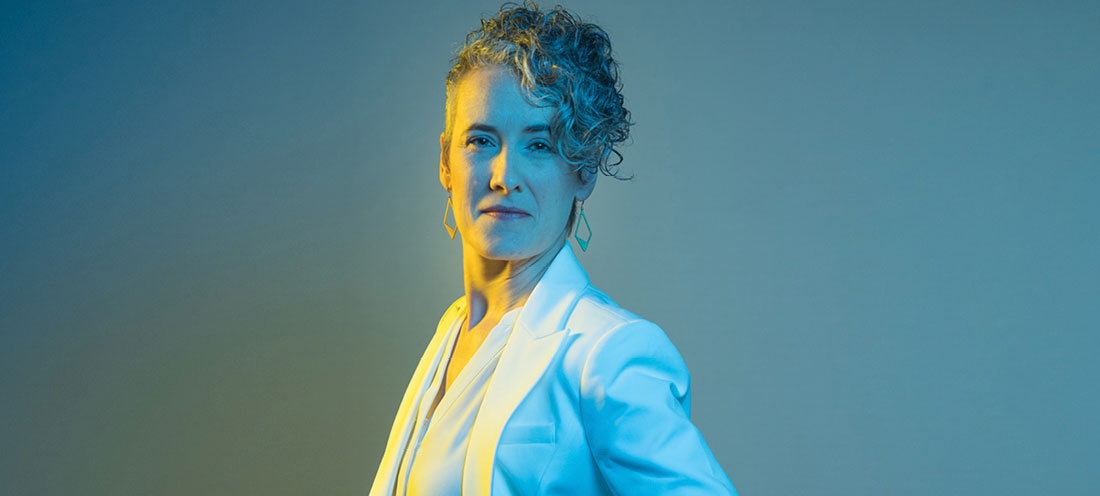For Lara Davis, MD, a physician-scientist, seeing patients drives home the importance of her research on a daily basis. All too often, she has to tell patients in her clinic that there are currently no medicines that can cure their sarcoma. “That’s not okay,” she said. “We need to be making more progress, faster progress.”
This sense of urgency is at the heart of Davis’ crusade to find new combinations of drugs that will be effective in treating sarcoma, a rare kind of cancer that affects the connective tissue in the body. Because nearly half of these cancers occur in adolescents and young adults, that’s Davis’ primary area of focus.
“This demographic has so much going on in their life — adolescents are just getting their first taste of independence, young adults might be starting a career or a family,” she said. “For them, a diagnosis of cancer is especially life altering. And because sarcoma isn’t that common, it can be very isolating as well.”
Davis is no stranger to Portland — after graduating from Wellesley College, she headed here to do volunteer work and promptly fell in love with the city. In fact, she loved it so much that she decided to get her medical degree at OHSU. It was right around the time that OHSU’s Brian Druker, MD, helped develop a breakthrough leukemia treatment with the drug Gleevec. “It was very apparent that we were entering a new era in cancer care,” Davis said. “I was excited by the science and the opportunity to make a difference.”
These days, Davis divides her time between treating patients, doing lab research and conducting clinical trials. “It’s really a multidisciplinary team,” she explained. “We’re doing all sorts of different things with chemo. We’ve got a trial around immunotherapies, and we’re looking at ways of combining radiation and targeted therapy. We’re also conducting a trial to help survivors improve their physical function.”
“Treating patients in the clinic gives me a reason for doing the research. And doing the research gives me a reason to hope.”
It’s rewarding work — but also emotionally challenging. “I love taking care of patients,” Davis said. “I’ve gotten to know some pretty amazing individuals. So when you lose them, well, it’s that much more difficult.”
Still, Davis said there are plenty of reasons to be optimistic. “There have been four new drugs approved by the FDA for sarcoma in the last few years, and our research is putting forward some really promising results,” she said. “There’s still a long way to go, but we’re getting there.”

